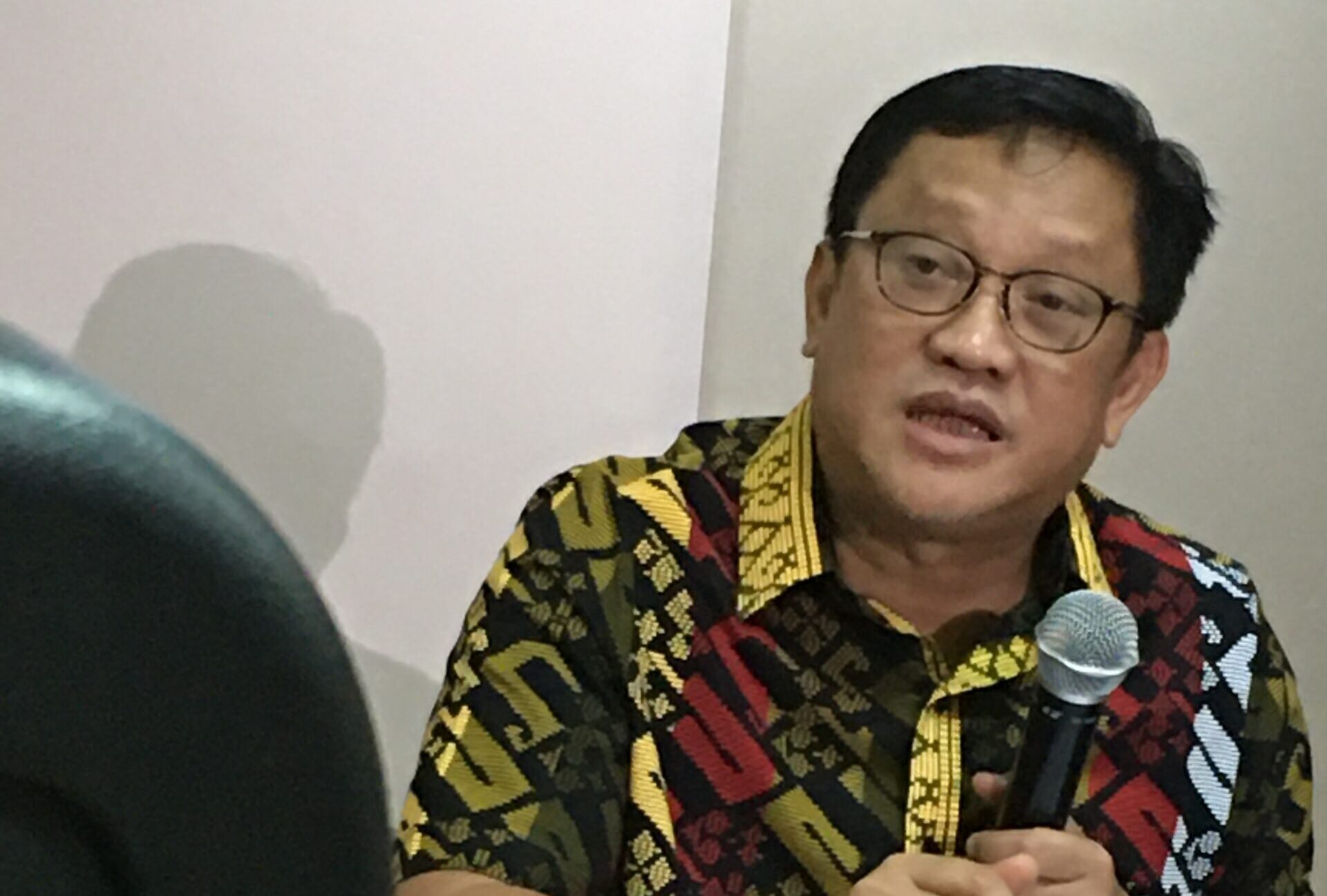
UP President Angelo Jimenez, the first UP President to come from Mindanao, said as soon as he was elected to the post, went to Butuan City and took his oath before his indigenous tribe, the Manobos of Agusan Valley. | PHOTO: GERMELINA LACORTE
DAVAO CITY — University of the Philippines (UP) President Angelo Jimenez on Tuesday, May 7, announced the national university’s “pivot to Mindanao,” as he revealed the university’s thrust to reach out to more students from disadvantaged sectors and to offer programs that cater to the growing health and development needs of Mindanao.
Jimenez said that UP Mindanao will start offering programs in Doctor of Medicine (MD) next year to address the dismal doctor to citizens’ ratio prevailing here; and other courses in engineering and entrepreneurship to support Mindanao’s “development aspirations.”
READ: UP expands degree programs in Mindanao campus, pushes more inclusive admission policy nationwide
Jimenez said while the World Health Organization (WHO) recommended an ideal ratio of one doctor for every 1,000 population, the country only has 3.7 doctors for every 10,000 people. In Davao City, the ratio is as low as one doctor for every 40,000 population.
“In Davao, we are very concerned about health. The data they gave me is 1 doctor for every 40,000. So hopefully by next year, we can establish the UP College of Medicine at UP Mindanao to produce more local doctors in Mindanao,” Jimenez told reporters.
He said that instead of waiting for years to build a facility, UP would rent a space to set up the college and to make use of the Southern Philippines Medical Center (SPMC) as a teaching facility. He said a lot of doctors here who graduated from the UP College of Medicine would be very happy to help.
If plans push through, UP Mindanao would be the first state university in Davao City to offer an MD program.
Jimenez, the first UP President to come from Mindanao and the first UP President to hold his investiture here when he assumed office in September last year, said part of the thrust of his administration would be to democratize access to UP education to a much broader spectrum of the population.
He said UP would give full support to passers of the UP College Aptitude Test (UPCAT) who would have a hard time entering UP because of financial reasons.
READ: UPCAT result for academic year 2024-2025 out
According to Jimenez, of the 100,000 students who take the UPCAT exams each year, only about 10 per cent are taken. But among those who passed, there are 1,400 to 1,500 students that do not enroll.
“Of course, there are those who (don’t enroll because they had other options), but we want to focus on the disadvantaged sectors. We noted that 40 percent of (those who don’t enroll) had no money to support education even if it’s already free (because) the cost of education does not consist only of tuition but also include the cost of food, library, transport, dormitories, even books and right now, because of the highly technical nature of knowledge delivery, you need (budget for) communication, particularly internet communication, including gadgets laptops, tablets, so we’re going to correct that right now,” he said.
Of the 350 UPCAT passers identified to be from the disadvantaged sectors this year, 60 are in Mindanao and will be studying at UP Mindanao, he said. “That’s how determined we are,” he said, adding that UP would be allotting P85,000 to P150,000 budget for housing, food allowance, transport and other non-tuition expenses for each student in this sector.
“The UPCAT still remains to be the most difficult exam in the country, so if somebody from the marginalized (sector) passed the UPCAT, that is extraordinary. We feel, as a first step, yun lang muna ang saluhin namin (those are whom we’re going to answer),” he said. “We are going to focus on that sector of UPCAT passers who for some extraordinary reasons passed the toughest exams in the country currently dominated by students from private schools,” he said.
Prof. Lyre Anni E. Murao, chancellor of UP Mindanao, said they were also targeting to increase student enrollment here from the current 1,400 students to 5,000 by year 2029. INQ